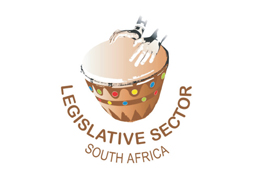
The High Level Panel (HLP) on the Assessment of Key Legislation and Acceleration of Fundamental Change, which was established to conduct research on the efficacy of laws passed by Parliament since 1994, has submitted its report to the Speakers’ Forum.
On Tuesday evening the Chairperson of the HLP, former President Kgalema Motlanthe, officially handed over the 604-page report to the Chairperson of the Speakers’ Forum, and National Assembly Speaker, Ms Baleka Mbete, at the Sandton Convention Centre during a special meeting of the Speakers’ Forum.
Mr Motlanthe said the panel hopes the recommendations will offer some direction on how to “bring about accelerated change in our country, on the various sectors which include land reform, poverty eradication and nation-building”.
After 21 months of traversing the country soliciting views from the public, experts, academics and business people, Mr Motlanthe said the work of the panel was “immense but necessary” and congratulated the Speakers’ Forum for engaging in the exercise.
“Since 1994 our Parliament has been passing legislation but we have never paused to assess the impact of the laws. This is the correct moment to pause and take stock, look at challenges and successes, what needs to be corrected.
“Honourable Speaker and Speakers of the Legislatures, today is a special day, we are handing over the report of the HLP that was established in December 2015 and we thank the Speakers’ Forum for establishing this immense but necessary exercise.
“Over the past 21 months the panel’s public hearings were attended by at least 10 000 people who spoke about their lives eloquently and movingly. We heard about corruption, disappointments in government performance, heard about farms going to officials and politicians rather than the people who lodged land claims,” said Mr Motlanthe.
He said evidence presented during the public hearings suggested that the ills of the past were being reproduced in post-apartheid south Africa, in many areas, including deep inequities in the quality of services delivered to the people.
“We hope the recommendations offer some direction how to bring about accelerated change – land reform and poverty eradication. We recommend that the country needs to create key human capabilities in order to enable economic growth, we have also identified the need to improve the quality of education to enable South Africans to participate in the modern economy. Parliament must enact legislation and oversight that will ensure the county delivers education worthy of learners’ aspirations,” he said.
The panel has also identified serious deficiencies in the quality of healthcare especially public health, and pronounced its support for the government’s proposed National Healthcare, saying it will help South Africa to achieve universal healthcare for all.
Among other recommendations, Mr Motlanthe and his panel also made a call for amendments to the country’s electoral laws to be amended to make Members of Parliament accountable to the public, through a constituency-based system.
we need meaningful land reform that recognises the property right of the poor – Parliament should amend the restitution of land rights before July 2018.
Ms Mbete said the HLP report graphically shows progress made to improve many facets of people’s lives in South Africa through the execution of hundreds of pieces of legislation passed by the whole legislative sector since the advent of democracy.
“The report also paints a disheartening picture of legislative and policy gaps, as well as failed execution of many brilliant pieces of legislation and policies. Irrespective of this historical and undeniable fact, we also do acknowledge that there has been inexcusable weaknesses on the side of Parliament and the legislative sector on the one hand, and the executive arm of the state on the other, which resulted in missed opportunity, diversion of attention from the core issue, silo operations, the latent reinforcement of the colonial and apartheid macro-economic development designs, and failures at the execution phases of brilliant pieces of legislation and policies,” she said.
In welcoming the recommendations of the HLP, Ms Mbete said the legislative sector undertakes to do the following:
Table this report in all legislatures of South Africa for intensive debates aimed at reaching optimal consensus on requisite goals, targets, mechanisms for resourcing and executing them without delay;
Ensure optimal communication of these findings to every sector and every individual that contributed in producing the ground-breaking findings and recommendations of the HLP, as an integral part of maximising citizen empowerment, participation and ownership of the new direction; and
Double the sector’s efforts and engagement of the Treasury and the Presidency, to better strengthen the Parliamentary Budget Office and invoke the provisions of the Money Bills Amendment Procedure and Related Matters Act, to ensure a profound realignment of resource or budget allocations.
“We had made good progress in building Parliament’s capacity for legislation drafting, and we declared during the mid-term performance report-back to the stakeholders and the media last week that we will further enhance the capacity of the drafting section into a division that will work with all legislatures to boost the sector’s broader capacity.
“We concur with the HLP that drastic measures are required to “fundamentally alter the trajectory of our society’s development”, through inclusive development and removal of any barriers including legislative amendments, affirming the rights of rural-based citizens, women and people with disabilities,” said Ms Mbete.
By Sakhile Mokoena
22 November 2017

